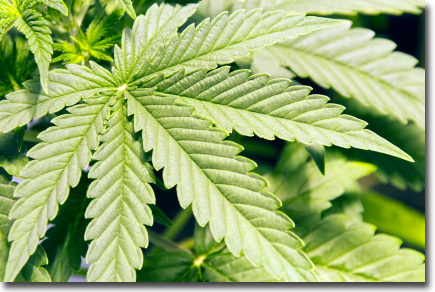|
First, some bad news, though. On Friday,
September 10, Marc Emery was sentenced in a Seattle courtroom to five years in
jail for being a pain in the butt. Of course, officially he was sentenced for
selling marijuana seeds over the Internet, some of which were shipped to the
United States. He operated openly, and the Canadian government refused to throw
him in jail, so American drug warriors came and got him themselves. Emery
expressed regret to the court for his actions, saying he had “acted arrogantly,”
although the
Vancouver Sun’s Ian Mulgrew compared his sincerity to Galileo’s
“confession.” The analogy seems apt, as the U.S. government’s position on drugs
makes about as much sense as the medieval Church’s position on the motion of
celestial bodies. At any rate, Emery’s lawyer Richard Troberman was less
apologetic, saying, “The attorney-general’s true motive—which was to silence Mr.
Emery’s political activity—could not be more clear.”
 Protest rallies are being held this Saturday,
September 18 in over 80 cities around the world. The purpose of the rallies is
to get Canadian Minister of Public Safety Vic Toews to repatriate Marc Emery to
Canada to serve out his sentence here, and ultimately to free Marc Emery
entirely for his non-violent, victimless political crime. If you think arrogance
is no crime and Emery is in jail for having the courage of his convictions, you
can visit Cannabis Culture’s website
for exact times and locations of rallies in your city.
Protest rallies are being held this Saturday,
September 18 in over 80 cities around the world. The purpose of the rallies is
to get Canadian Minister of Public Safety Vic Toews to repatriate Marc Emery to
Canada to serve out his sentence here, and ultimately to free Marc Emery
entirely for his non-violent, victimless political crime. If you think arrogance
is no crime and Emery is in jail for having the courage of his convictions, you
can visit Cannabis Culture’s website
for exact times and locations of rallies in your city.
As bad as Emery’s imprisonment is, there is a
strange twist to his story that is encouraging, if also infuriating. Just one
week before Emery was sentenced, the former U.S. attorney who indicted him, John
McKay, publicly denounced his country’s marijuana policy as “wrongheaded” and
“dangerous.” In
a guest column in The Seattle Times, McKay opined that the criminal
prohibition of pot has “utterly failed.” He called for giving “serious
consideration to heavy regulation and taxation of the marijuana industry” and
essentially treating pot like alcohol. No word on whether he plans to attend the
Seattle rally on Saturday to repatriate and free the man he indicted using his
country’s wrongheaded, dangerous, failed policies.
|
More Evidence for Medical
Marijuana |
Despite his change of heart on pot prohibition,
John McKay seems to doubt whether marijuana really has any significant medical
benefits. A study published in the Canadian Medical Association Journal
just days before his guest column
finds otherwise. Dr. Mark Ware and his McGill University colleagues found,
in a placebo-controlled test, that smoking even small amounts of marijuana could
relieve pain, help patients sleep, and ease anxiety.
With only 21 patients and only three different
regimens of marijuana tested alongside the placebo, the results, while
encouraging, could use further study. But the researchers had to overcome
significant regulatory hurdles in order to conduct their limited experiments in
the first place, given the illicit nature of the product they were testing. We
would know much more already if the heavy hand of government had not been
impeding progress for decades now.
For my part, I had the pleasure of meeting and
interviewing a registered medical marijuana user earlier this summer. Eleanor
Podmore is a 56-year-old mother of two living in a nice, professional
neighbourhood in a suburb of Toronto. Five years ago, Eleanor came down with a
severe case of sciatica, a painful and debilitating medical condition. You can
read about how marijuana has helped her get her life back
here.
|

